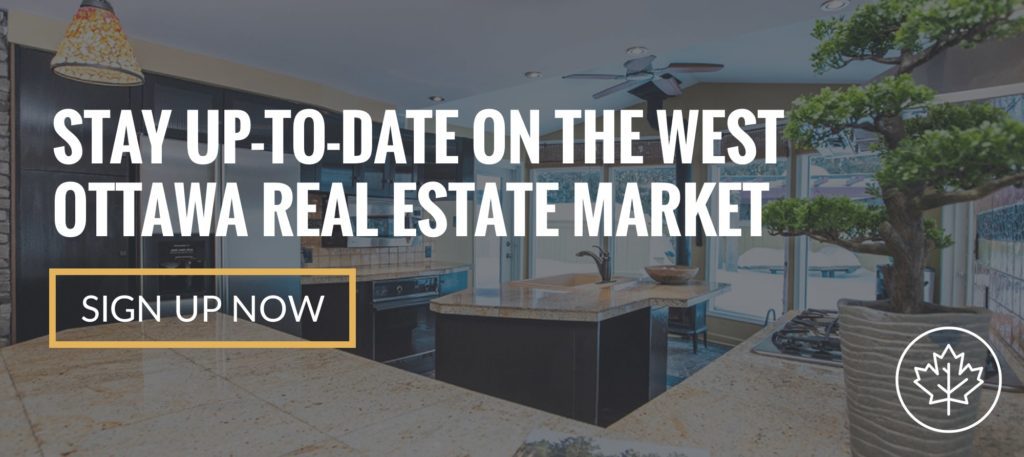Everything You Need to Know About Buying Vacant Land
Buying • May 11, 2022
With the shortage of available real estate in the Ottawa area, one solution many people are looking into is buying vacant land. The idea seems perfect on paper. You can build a beautiful custom home completely tailored to your wants and needs. If you’re a commercial developer, the sky is the limit. Vacant land generally means there are no multiple offers or fierce bidding wars to contend with, and you can construct anywhere land is available.
A brand new build also means you’ll never have a cookie-cutter building that looks like everything else on the block.
One of the reasons to buy vacant land is to build a beautiful home in a rural setting. However, there are many other options for you:
- The Top Rural Ottawa Towns You Need to Know About
- Rural West Ottawa: The Best of Both Worlds
- What You Need to Know About Moving to The Country
Is this really the perfect solution? Or are there challenges you might not expect?
Is Buying Vacant Land More Complicated Than It Seems?
In Ontario, we aren’t just facing a housing shortage. There is also a land shortage affecting everyone, from individual buyers to home builders and commercial developers. Lots are getting snapped up quickly all over the province.
As you drive through the many beautiful green spaces in Ottawa, you might think that there is plenty of land available. However, much of it is protected.
In 1950, the provincial government created “The Greenbelt,” 20,000 hectares of land that no one can touch. This legislation protects the green space, forests, wetlands, streams and sand dunes that are critically important to our ecosystem.
It is fantastic for the environment and our future, but it does make finding available land more challenging.
How Much Does Vacant Land Really Cost?
If you look through some of the online listings, the costs of vacant land can be confusing. You’ll find lots available for as little as $60,000. However, the cost of building a custom home can add up quickly.
You’ve got to prepare the land for construction and gather all required permits. You’ll have to budget for the blueprint and design costs. Then there is the ever-increasing cost of labour and raw materials.
In addition to all of the expenses you expect, you’ll need to leave room in your budget for hidden fees and unexpected costs. Unlike buying a resale house, your move-in date is not set. It can take months or even several years to complete a project. A lot can happen during that time that may affect the total price of the build. Unforeseen delays can mean paying for temporary accommodations until your home is ready.
Holding on to vacant land for an extended time can also get challenging. Your net worth will grow as the land increases in value. However, you don’t have the same opportunity to generate monthly rental income as you would with a resale home.
The Financing Challenges of Buying Vacant Land
Buying vacant land is riskier for the banks, which can make it more challenging to get financing. Not every bank offers loans to purchase land, and those that do have more stringent guidelines. You’ll likely have to come up with a higher down payment, and the interest rate could be higher than a traditional mortgage.
Planning Your Purchase
Once you know the challenges ahead, you may still decide that buying vacant land is the best decision. In that case, it’s time to begin planning. The first step is to decide what you will use the land for. Do you intend to use it for residential, commercial or agricultural purposes?
Thinking about obtaining land for commercial purposes? Find out whether you should buy or lease here.
Before committing to a purchase, you’ll want to ensure that you can get all the permits you need to begin building. A little research into the zoning laws will tell you if you are allowed to follow through with your plans.
For example, some vacant land is marked for multi-residential buildings. The last thing you want is to buy the property only to find out that bureaucratic red tape stands in the way of your goals.
The next step is to decide what features and amenities you want. Do you want to be near a water line, or will you install a septic system? The more rural you are, the fewer big city conveniences you can expect.
If you want to be near transit or in an area with schools, shopping and restaurants close by, you’ll really have to search. It is getting more and more difficult to find available vacant lots in suburban areas.
Before signing on the dotted line, it’s essential to research what other projects are coming up. Otherwise, you may find yourself living in your dream home right next to a brand new airport.
Work With A Professional
Buying vacant land can get complicated, with several pitfalls along the way. However, if you work with a real estate professional, you can avoid many costly mistakes. Your Realtor® can help you navigate the maze of paperwork, permits and construction zones to help you find the perfect space for your goals.
We understand the ins and outs of buying land all over Ottawa, including the rural areas. Why not schedule a call with us to get your questions answered? Reach out to us right here.


